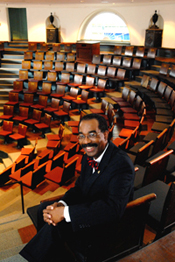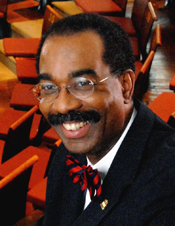 What’s on my mind this month is the need for enhanced federally-funded clinical research. We are currently witnessing an evolution in medical and scientific research at the national level. There are vast increases in biological data from the human genome project. Advanced technologies are being used for molecular discovery. There are developments in more personalized approaches to care. As part of this transformation, we are seeing a growing emphasis and embrace of both clinical and translational research by federal and state funding agencies. One needs to look no further than www.clinicaltrials.gov and the new National Center for Advancing Translational Sciences (NCATS) at NIH as evidence of the scope and magnitude of federally-funded clinical trial research.
What’s on my mind this month is the need for enhanced federally-funded clinical research. We are currently witnessing an evolution in medical and scientific research at the national level. There are vast increases in biological data from the human genome project. Advanced technologies are being used for molecular discovery. There are developments in more personalized approaches to care. As part of this transformation, we are seeing a growing emphasis and embrace of both clinical and translational research by federal and state funding agencies. One needs to look no further than www.clinicaltrials.gov and the new National Center for Advancing Translational Sciences (NCATS) at NIH as evidence of the scope and magnitude of federally-funded clinical trial research.
It is not difficult to see why this evolution has occurred. At the end of the day, what matters most is improving patient care. Indeed, it is our raison d’etre and, ultimately, why we conduct research in the first place.
Of course, we know there are and will continue to be persistent challenges in conducting clinical research—including infrastructure issues, human subject protection and other roadblocks along the way. However, we cannot let these impede our progress. We must work together to creatively overcome these challenges. Imagine that traffic is stalled on the way to work because of an accident. Do we turn around and go home? Absolutely not! We will find an alternate route to get there.
I am pleased to report that we are making progress in in finding detours around our clinical research roadblocks.
First, we have created The Clinical and Translational Sciences Institute (CTSI), which was established a year ago and is led by Dr. Alan Shuldiner and Dr. Stephen Davis. The mission of the CTSI is to create a strong infrastructure for translational research in laboratories and in the community, both in Baltimore and throughout the region. Through this institute, we hope to solve health problems across the human lifespan, especially addressing healthcare needs in underserved urban and rural populations. This is an opportunity to advance the University of Maryland to the forefront of clinical and translational research and into a new age of omics-based clinical medicine.
Second, our General Clinical Research Center (GCRC) is the cornerstone for clinical research within the University of Maryland. The GCRC, which supports the full spectrum of patient-oriented research, is available to all University of Maryland investigators who have a need for center resources and who will conduct clinical research of scientific merit. Studies funded by federal sources, foundations, industry and other sources are welcome, as are pilot studies that may lead to future peer-reviewed clinical research. The GCRC provides investigators with the resources they need to conduct clinical research, including nursing support and the facilities for inpatient and outpatient care, as well as a state-of-the-art Dual-Energy X-Ray Absorptiometry (DEXA) facility.
Third, we are already advancing clinical and translational research success in some specialized areas, but wish to broaden the horizon of clinical and translational research.
Our historic face transplant is a case in point. Performed last spring by a team led by Dr. Eduardo Rodriguez, the groundbreaking surgery was based on 10 years of basic science laboratory research, which was subsequently translated into a clinical research effort and eventuating into the engagement of over 150 physicians, nurses and technicians.
Another major research center contributing to these efforts is the Shock, Trauma and Anesthesiology Research Organized Research Center (STAR-ORC). STAR-ORC, led by Dr. Alan Faden is a world-class, multi-disciplinary research and educational center focusing on brain injuries, critical care and organ support, resuscitation, surgical outcomes, patient safety and injury prevention. Founded in 2008, the STAR-ORC encompasses the Congressionally mandated Charles “Mac” Mathias Jr. National Study Center for Trauma and Emergency Medical Systems; the clinical research activities of the R Adams Cowley Shock Trauma Center; the clinical research programs of the Program in Trauma; and the pre-clinical and clinical research programs of the Department of Anesthesiology.
The Center’s research focuses on mechanisms and modulation of cell death and neuroinflammation after experimental brain or spinal cord injury, including molecular and cell biology, animal modeling, behavior and drug discovery. The program is highly interdisciplinary, utilizing molecular and cellular biology, biochemistry, electrophysiology, pharmacology, behavior, magnetic resonance imaging and spectroscopy and quantitative histological analysis.
With the combined resources of the School of Medicine, the Shock Trauma Center, the National Study Center, and the UMB campus, the STAR-ORC is uniquely positioned to enhance patient care through pre-clinical and clinical research.
The University of Maryland Greenebaum Cancer Center (UMGCC) also is a strong participant in new drug development and translational clinical trials. The Cancer Center is a member of several national cooperative groups and has established strong translational research programs in experimental therapeutics, hor-mone-responsive cancers, molecular biology and genetics, viral oncology, tumor immunology, and cancer prevention and control. Cancer Center members have a strong commitment to intra- and inter-institutional cooperative cancer research.
Ultimately, the translation of discoveries in basic and applied science into useful clinical and public health interventions and uses of such interventions to reduce disability, morbidity and health disparities are the ways the public measures the success of its investments in biological and behavioral research.
In the end, if we are to continue to attract funding from federal and state agencies, we must continue on this path. We must utilize every means available to translate our basic science discoveries into clinical investigation. That is how we will truly impact patient care now and in the future.
In the relentless pursuit of excellence, I am
E. Albert Reece, MD, PhD, MBA
Vice President for Medical Affairs, University of Maryland
John Z. and Akiko K. Bowers Distinguished Professor and
Dean, University of Maryland School of Medicine
Appointments
 Michael Shipley, PhD, the Donald E. Wilson Distinguished Professor and Chair, Department of Anatomy & Neurobiology, has been elected secretary/treasurer of the Association of Medical School Neuroscience Department Chairs (AMSNDC) for the term 2013–2015, after declining an offer to run for president because he had recently served as president of another Chairs group, the Association of Anatomy, Cell Biology and Neurobiology Chairs (AACBNC). Dr. Shipley is currently serving his second two-year term as the CAS representative for AACBNC.
Michael Shipley, PhD, the Donald E. Wilson Distinguished Professor and Chair, Department of Anatomy & Neurobiology, has been elected secretary/treasurer of the Association of Medical School Neuroscience Department Chairs (AMSNDC) for the term 2013–2015, after declining an offer to run for president because he had recently served as president of another Chairs group, the Association of Anatomy, Cell Biology and Neurobiology Chairs (AACBNC). Dr. Shipley is currently serving his second two-year term as the CAS representative for AACBNC.
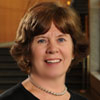 Maureen Black, PhD, the John A. Scholl, MD, and Mary Louise Scholl, MD, Professor, Department of Pediatrics, was appointed to serve on the NIH committee “Evaluating the Evidence Base to Support the Inclusion of Infants and Children from Birth to 24 months of Age in the Dietary Guidelines for Americans—The B-24 Project.”
Maureen Black, PhD, the John A. Scholl, MD, and Mary Louise Scholl, MD, Professor, Department of Pediatrics, was appointed to serve on the NIH committee “Evaluating the Evidence Base to Support the Inclusion of Infants and Children from Birth to 24 months of Age in the Dietary Guidelines for Americans—The B-24 Project.”
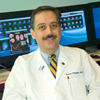 Vasken Dilsizian, MD, professor, Department of Diagnostic Radiology & Nuclear Medicine, was elected to serve as vice president in 2012 and president in 2013 for the Cardiovascular Council of the Society of Nuclear Medicine. In addition, he was appointed to serve as the vice chair in 2012 and the chair in 2013 of the Scientific Program Committee of the American Society of Nuclear Cardiology. He was also appointed to chair the American College of Cardiology/American Heart Association (ACC/AHA) Task Force on Clinical Competence and Training for Nuclear Cardiology and to integrate the ACGME’s core competency structure into the COCATS training document.
Vasken Dilsizian, MD, professor, Department of Diagnostic Radiology & Nuclear Medicine, was elected to serve as vice president in 2012 and president in 2013 for the Cardiovascular Council of the Society of Nuclear Medicine. In addition, he was appointed to serve as the vice chair in 2012 and the chair in 2013 of the Scientific Program Committee of the American Society of Nuclear Cardiology. He was also appointed to chair the American College of Cardiology/American Heart Association (ACC/AHA) Task Force on Clinical Competence and Training for Nuclear Cardiology and to integrate the ACGME’s core competency structure into the COCATS training document.
 Toni Pollin, PhD, associate professor, Departments of Medicine and Epidemiology & Public Health, was appointed to a four-year term on the National Institutes of Health/Center for Scientific Review Clinical and Integrative Cardiovascular Science study section beginning October 2012. The task of this study section is to review grant proposals of patient-oriented research involving the cardiovascular system and related regulatory organ systems. Dr. Pollin was also appointed to a three-year term on the editorial board for the journal Diabetes beginning in July 2012.
Toni Pollin, PhD, associate professor, Departments of Medicine and Epidemiology & Public Health, was appointed to a four-year term on the National Institutes of Health/Center for Scientific Review Clinical and Integrative Cardiovascular Science study section beginning October 2012. The task of this study section is to review grant proposals of patient-oriented research involving the cardiovascular system and related regulatory organ systems. Dr. Pollin was also appointed to a three-year term on the editorial board for the journal Diabetes beginning in July 2012.
 Jean-Pierre Raufman, MD, professor, Department of Medicine, was appointed to a four-year term (September 2012–June 2016) as chair for the NIH Digestive Diseases and Nutrition C Subcommittee. The Committee serves in an advisory capacity to the director at NIH, and the director at NIDDK for the Institute’s programs and activities in the broad areas of diabetes and digestive and kidney diseases.
Jean-Pierre Raufman, MD, professor, Department of Medicine, was appointed to a four-year term (September 2012–June 2016) as chair for the NIH Digestive Diseases and Nutrition C Subcommittee. The Committee serves in an advisory capacity to the director at NIH, and the director at NIDDK for the Institute’s programs and activities in the broad areas of diabetes and digestive and kidney diseases.
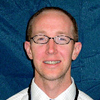 Michael Winters, MD, associate professor; Michael Bond, MD, assistant professor; Haney Mallemat, MD, assistant professor; Fermin Barrueto, Jr., MD, clinical associate professor; Michael Abraham, MD, MS, clinical assistant professor; Alisa Gibson, MD, DMD, clinical assistant professor; Sarah Sommerkamp, MD, RDMS, assistant professor; and George Willis, MD, assistant professor, all from the Department of Emergency Medicine, have all been appointed as faculty members for the 2012 Continuous Certification (ConCert™) Board Review Course, available at EMedHome (www.emedhome.com/cme_boardreview_about.cfm). The content is designed to help emergency physicians prepare for recertification by the American Board of Emergency Medicine and is being used as an international emergency medicine core curriculum course.
Michael Winters, MD, associate professor; Michael Bond, MD, assistant professor; Haney Mallemat, MD, assistant professor; Fermin Barrueto, Jr., MD, clinical associate professor; Michael Abraham, MD, MS, clinical assistant professor; Alisa Gibson, MD, DMD, clinical assistant professor; Sarah Sommerkamp, MD, RDMS, assistant professor; and George Willis, MD, assistant professor, all from the Department of Emergency Medicine, have all been appointed as faculty members for the 2012 Continuous Certification (ConCert™) Board Review Course, available at EMedHome (www.emedhome.com/cme_boardreview_about.cfm). The content is designed to help emergency physicians prepare for recertification by the American Board of Emergency Medicine and is being used as an international emergency medicine core curriculum course.
Events, Lectures & Workshops
 Gad Alon, PT, PhD, associate professor emeritus, presented the workshop “Functional Electrical Stimulation (FES) and Non-Invasive Electrical Brain Stimulation (ESB): On the Road to Personalized Intervention in Neuro-Rehabilitation” at the International Functional Electrical Stimulation Society (IFESS), in Banff, Canada, in September.
Gad Alon, PT, PhD, associate professor emeritus, presented the workshop “Functional Electrical Stimulation (FES) and Non-Invasive Electrical Brain Stimulation (ESB): On the Road to Personalized Intervention in Neuro-Rehabilitation” at the International Functional Electrical Stimulation Society (IFESS), in Banff, Canada, in September.
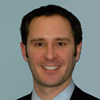 Bryan Ambro, MD, MS, assistant professor, Department of Otorhinolaryngology -Head & Neck Surgery, was co-director of a Microtia Reconstruction Workshop at the American Academy of Facial Plastic & Reconstructive Surgery Annual Fall meeting in Washington, DC, September 9–12.
Bryan Ambro, MD, MS, assistant professor, Department of Otorhinolaryngology -Head & Neck Surgery, was co-director of a Microtia Reconstruction Workshop at the American Academy of Facial Plastic & Reconstructive Surgery Annual Fall meeting in Washington, DC, September 9–12.
 Maureen Black, PhD, the John A. Scholl, MD, and Mary Louise Scholl, MD, Professor, Department of Pediatrics, presented “How Can We Integrate Early Child Development and Other Sectors to Address Stunting? Lessons from Low- and Middle-income Countries” at a meeting on “Long-term Consequences of Chronic Under-Nutrition in Early Life” at UNICEF in New York City on August 15. She also presented “Implementation Science: Integration of Nutrition and Child Development Interventions” at the New York Academy of Sciences in New York City on August 29. And she presented “Integrating Child Development and Nutrition Among Infants in Rural India: Lessons from the Field” at the Maternal and Child Health Integration Program at USAID in Washington, DC, on September 27.
Maureen Black, PhD, the John A. Scholl, MD, and Mary Louise Scholl, MD, Professor, Department of Pediatrics, presented “How Can We Integrate Early Child Development and Other Sectors to Address Stunting? Lessons from Low- and Middle-income Countries” at a meeting on “Long-term Consequences of Chronic Under-Nutrition in Early Life” at UNICEF in New York City on August 15. She also presented “Implementation Science: Integration of Nutrition and Child Development Interventions” at the New York Academy of Sciences in New York City on August 29. And she presented “Integrating Child Development and Nutrition Among Infants in Rural India: Lessons from the Field” at the Maternal and Child Health Integration Program at USAID in Washington, DC, on September 27.
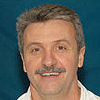 Kenneth Butler, DO, associate professor; Bryan Hayes, PharmD, DABAT, clinical assistant professor; and Floyd Howell, MD, former emergency medicine resident (now at Franklin Square Medical Center), all from the Department of Emergency Medicine, presented “Status Epilepticus Following Use of Synthetic Marijuana” at the 2012 North American Congress of Clinical Toxicology, held in Las Vegas in early October. The abstract was published in the August issue of Clinical Toxicology.
Kenneth Butler, DO, associate professor; Bryan Hayes, PharmD, DABAT, clinical assistant professor; and Floyd Howell, MD, former emergency medicine resident (now at Franklin Square Medical Center), all from the Department of Emergency Medicine, presented “Status Epilepticus Following Use of Synthetic Marijuana” at the 2012 North American Congress of Clinical Toxicology, held in Las Vegas in early October. The abstract was published in the August issue of Clinical Toxicology.
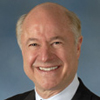 Curt Civin, MD, professor, Departments of Pediatrics and Physiology, associate dean for research at the School of Medicine and director of the Center for Stem Cell Biology & Regenerative Medicine, served as a panelist for the 2012 Mid-Atlantic Bio Conference held in September in Bethesda, MD.
Curt Civin, MD, professor, Departments of Pediatrics and Physiology, associate dean for research at the School of Medicine and director of the Center for Stem Cell Biology & Regenerative Medicine, served as a panelist for the 2012 Mid-Atlantic Bio Conference held in September in Bethesda, MD.
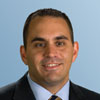 Raymond Cross, MD, MS, and Mark Flasar, MD, MS, were the organizers of “Updates in IBD,” the 7th University of Maryland Division of Gastroenterology symposium, held on November 9 at the SMC Campus Center. The purpose of this one-day CME course was to provide up-to-date approaches to treatment and management of patients with IBD. Topics included management of moderate to severe IBD, issues in the care of women with IBD, cancer screening in chronic colitis, medical and surgical treatment of complicated and refractory IBD, endpoints of medical therapy, and risks of immune suppressant and biologic therapy.
Raymond Cross, MD, MS, and Mark Flasar, MD, MS, were the organizers of “Updates in IBD,” the 7th University of Maryland Division of Gastroenterology symposium, held on November 9 at the SMC Campus Center. The purpose of this one-day CME course was to provide up-to-date approaches to treatment and management of patients with IBD. Topics included management of moderate to severe IBD, issues in the care of women with IBD, cancer screening in chronic colitis, medical and surgical treatment of complicated and refractory IBD, endpoints of medical therapy, and risks of immune suppressant and biologic therapy.
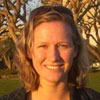 Erin Hager, PhD, assistant professor, Department of Pediatrics, presented an invited lecture titled “The Built Environment and Obesity Among School-Aged Children” at the Mid-Atlantic Association for Child Health and the Environment (MAACHE) conference in Baltimore on September 21.
Erin Hager, PhD, assistant professor, Department of Pediatrics, presented an invited lecture titled “The Built Environment and Obesity Among School-Aged Children” at the Mid-Atlantic Association for Child Health and the Environment (MAACHE) conference in Baltimore on September 21.
Ronna Hertzano, MD, PhD, assistant professor, Department of Otorhinolaryngology-Head & Neck Surgery, gave an invited lecture on “The Mouse as an Instrument for Ear Research V” at an international workshop organized by the Jackson Laboratories for new and established investigators interested in becoming researchers in the otologic field.
 Kristen Hurley, PhD, assistant professor, Department of Pediatrics, presented “Responsive Feeding: Integration of Nutrition and Child Development Interventions” at the New York Academy of Sciences in New York City on August 29.
Kristen Hurley, PhD, assistant professor, Department of Pediatrics, presented “Responsive Feeding: Integration of Nutrition and Child Development Interventions” at the New York Academy of Sciences in New York City on August 29.
 Judy LaKind, PhD, adjunct associate professor, Department of Epidemiology & Public Health, was invited to participate in the US Environmental Protection Agency’s “Expert Workshop in Approaches to Improving the Risk Assessment of Persistent, Bioaccumulative and Toxic (PBT) Chemicals in Breast Milk” from October 24–26 in Research Triangle Park, NC.
Judy LaKind, PhD, adjunct associate professor, Department of Epidemiology & Public Health, was invited to participate in the US Environmental Protection Agency’s “Expert Workshop in Approaches to Improving the Risk Assessment of Persistent, Bioaccumulative and Toxic (PBT) Chemicals in Breast Milk” from October 24–26 in Research Triangle Park, NC.
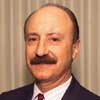 Alberto J. L. Macario, MD, adjunct professor, Department of Microbiology & Immununology, presented “Hsp60 Chaperonopathies: Genetic, Cancer, Inflammation” at the 6th International Symposium on Heat Shock Proteins in Biology and Medicine of the Cell Stress Society International at the Hilton Alexandria Old Town in Alexandria, VA, on November 6; “Molecular Abnormalities of Chaperones and Their Pathogenic Potential” at Centro Andaluz De Biología del Desarrollo-CSIC, Universidad Pablo de Olavide in Sevilla, Spain, on November 16; “The Human Chaperoning System and Its Diseases” at Parc de Recerca Biomedica de Barcelona (PRBB) in Barcelona, Spain, on November 19; and “Intra- and Extracellular Chaperones and Chaperonopathies” at the Instituto de Investigaciones Biomédicas “Alberto Sols” (IIB), Facultad de Medicina, Universidad Autónoma de Madrid in Madrid, Spain, on November 23.
Alberto J. L. Macario, MD, adjunct professor, Department of Microbiology & Immununology, presented “Hsp60 Chaperonopathies: Genetic, Cancer, Inflammation” at the 6th International Symposium on Heat Shock Proteins in Biology and Medicine of the Cell Stress Society International at the Hilton Alexandria Old Town in Alexandria, VA, on November 6; “Molecular Abnormalities of Chaperones and Their Pathogenic Potential” at Centro Andaluz De Biología del Desarrollo-CSIC, Universidad Pablo de Olavide in Sevilla, Spain, on November 16; “The Human Chaperoning System and Its Diseases” at Parc de Recerca Biomedica de Barcelona (PRBB) in Barcelona, Spain, on November 19; and “Intra- and Extracellular Chaperones and Chaperonopathies” at the Instituto de Investigaciones Biomédicas “Alberto Sols” (IIB), Facultad de Medicina, Universidad Autónoma de Madrid in Madrid, Spain, on November 23.
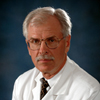 Philip Mackowiak, MD, MBA, professor & vice-chair, Department of Medicine, was the Keynote Speaker at the University of Maryland 35th Annual Medical Student Research Day on September 27, where he presented a talk on “Random Thoughts on Medical Evidence.” Dr. Mackowiak was also the featured speaker at the Goddard Space Flight Center Scientific Colloquia, where he gave a talk on “Beethoven and the Sound that Failed,” and was the keynote speaker at the October 6 annual meeting of the National Association of Medical Examiners in Baltimore, MD, where he spoke on “Mozart’s Fatal Anasarca.”
Philip Mackowiak, MD, MBA, professor & vice-chair, Department of Medicine, was the Keynote Speaker at the University of Maryland 35th Annual Medical Student Research Day on September 27, where he presented a talk on “Random Thoughts on Medical Evidence.” Dr. Mackowiak was also the featured speaker at the Goddard Space Flight Center Scientific Colloquia, where he gave a talk on “Beethoven and the Sound that Failed,” and was the keynote speaker at the October 6 annual meeting of the National Association of Medical Examiners in Baltimore, MD, where he spoke on “Mozart’s Fatal Anasarca.”
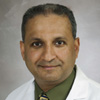 Kevin Pereira, MD, MS (ORL), professor, Department of Otorhinolaryngology-Head and Neck Surgery, was invited to be “Professor for the Day in Pediatric Otolaryngology” at the University of Texas Southwestern Medical Center and the Children’s Medical Center of Dallas in October. He lectured on “Inflammatory Disorders of the Pediatric Airway.”
Kevin Pereira, MD, MS (ORL), professor, Department of Otorhinolaryngology-Head and Neck Surgery, was invited to be “Professor for the Day in Pediatric Otolaryngology” at the University of Texas Southwestern Medical Center and the Children’s Medical Center of Dallas in October. He lectured on “Inflammatory Disorders of the Pediatric Airway.”
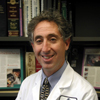 Alan Shuldiner, MD, the John L. Whitehurst Endowed Professor, Department of Medicine, and director of the Program in Personalized and Genomic Medicine, gave the Jack Mulholland Memorial Lecture, entitled “Knitting Needles, Lancaster Haystacks and the Search for Genes for Common Diseases and Their Treatment and Prevention” at Union Memorial Hospital in Baltimore, MD, on September 6.
Alan Shuldiner, MD, the John L. Whitehurst Endowed Professor, Department of Medicine, and director of the Program in Personalized and Genomic Medicine, gave the Jack Mulholland Memorial Lecture, entitled “Knitting Needles, Lancaster Haystacks and the Search for Genes for Common Diseases and Their Treatment and Prevention” at Union Memorial Hospital in Baltimore, MD, on September 6.
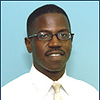 Rodney Taylor, MD, associate professor, Department of Otorhinolaryngology-Head & Neck Surgery, presented “Evaluation of Superficial Musculoaponeurotic System Flap and Fat Graft Reconstructive Outcomes for Benign and Malignant Parotid Disease” at the American Academy of Otolaryngology’s Annual Fall Meeting in Washington, DC, September 9–12.
Rodney Taylor, MD, associate professor, Department of Otorhinolaryngology-Head & Neck Surgery, presented “Evaluation of Superficial Musculoaponeurotic System Flap and Fat Graft Reconstructive Outcomes for Benign and Malignant Parotid Disease” at the American Academy of Otolaryngology’s Annual Fall Meeting in Washington, DC, September 9–12.
The faculty of the Department of Physiology held a Mini-Med School at the Edenwald Retirement Community in Towson earlier this year. Led by Ted Carski, ’56, the faculty gave monthly lectures to the residents highlighting on- going research in the department, with emphasis on the health concerns of the elderly. It obviously had an impact—in the weeks following the lecture by Scott Thompson, PhD, professor and interim chair of the department, regarding depression in the elderly and the beneficial effects of physical exercise, Dr. Carski said use of the Edenwald Fitness Center increased by more than 50 percent.
going research in the department, with emphasis on the health concerns of the elderly. It obviously had an impact—in the weeks following the lecture by Scott Thompson, PhD, professor and interim chair of the department, regarding depression in the elderly and the beneficial effects of physical exercise, Dr. Carski said use of the Edenwald Fitness Center increased by more than 50 percent.
The University of Maryland School of Medicine’s Institute for Genome Sciences hosted “Frontiers in Genomics,” a day-long scientific symposium, on October 18 in honor of the institute’s fifth anniversary. The program featured four globally recognized experts in genomics and bioinformatics: Julian Parkhill, PhD, Head of Pathogen Genomics, The Wellcome Trust Sanger Institute; Michael Snyder, PhD, Director of the Stanford Center for Genomics and Personalized Medicine; Elaine Ostrander, PhD, Chief and NIH Distinguished Investigator, the National Institutes of Health; and John Quackenbush, PhD, Director of the Center of Cancer Computational Biology, Dana-Farber Cancer Institute. They spoke about new approaches to genomic applications in infectious diseases, pathogenic research and personalized medicine to a diverse audience of researchers, students, and faculty. “We were so honored to host these well-known scientific genome leaders here for the Frontiers’ program,” says Claire M. Fraser, PhD, director of IGS and a professor in the Departments of Medicine and Microbiology & Immunology. “This was also a celebration for Baltimore and the University of Maryland professional schools, as our colleagues here are incorporating genomics into many different kinds of research.”
Grants & Contracts
 Sania Amr, MD, MS, professor, Department of Epidemiology & Public Health, received a $150,000, two-year award from the Health Resources and Services Administration for “Integrative Medicine Program.”
Sania Amr, MD, MS, professor, Department of Epidemiology & Public Health, received a $150,000, two-year award from the Health Resources and Services Administration for “Integrative Medicine Program.”
 William Blattner, MD, professor, Departments of Medicine and Epidemiology & Public Health, has been awarded a new three-year, $2.5 million R01 from the National Institute of Mental Health (NIMH) for his project “TRUST.” He has also been awarded a new five-year, U2G from the Centers for Disease Control and Prevention in the amount of $2.5 million for the “Nigerian Alliance for Health Systems Strengthening (NAHSS).”
William Blattner, MD, professor, Departments of Medicine and Epidemiology & Public Health, has been awarded a new three-year, $2.5 million R01 from the National Institute of Mental Health (NIMH) for his project “TRUST.” He has also been awarded a new five-year, U2G from the Centers for Disease Control and Prevention in the amount of $2.5 million for the “Nigerian Alliance for Health Systems Strengthening (NAHSS).”
 Raymond Cross, MD, MS, AGAF, associate professor, Department of Medicine, received a three-year $1,107,156 R01 grant from the Agency for Healthcare Research and Quality for “TELEmedicine in Patients with Inflammatory Bowel Disease: TELE-IBD.”
Raymond Cross, MD, MS, AGAF, associate professor, Department of Medicine, received a three-year $1,107,156 R01 grant from the Agency for Healthcare Research and Quality for “TELEmedicine in Patients with Inflammatory Bowel Disease: TELE-IBD.”
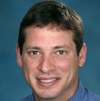 Eric Goldberg, MD, assistant professor, Department of Medicine, received a $49,950.00 grant from the Technology Development Corporation (TEDCO) University Technology Development Fund to support his research in developing an expandable endoscopic clipping device.
Eric Goldberg, MD, assistant professor, Department of Medicine, received a $49,950.00 grant from the Technology Development Corporation (TEDCO) University Technology Development Fund to support his research in developing an expandable endoscopic clipping device.
 Erin Hager, PhD, assistant professor, and Maureen Black, PhD, the John A. Scholl, MD, and Mary Louise Scholl, MD, Professor, both from the Department of Pediatrics—in collaboration with Dr. Carolyn Voorhees and the Prevention Research Center at the University of Maryland College Park—were awarded a two-year, $140,000 CDC Special Interest Program Award beginning October 1 for “Implementation of Local Wellness Policies in Low-Income, Urban Schools.”
Erin Hager, PhD, assistant professor, and Maureen Black, PhD, the John A. Scholl, MD, and Mary Louise Scholl, MD, Professor, both from the Department of Pediatrics—in collaboration with Dr. Carolyn Voorhees and the Prevention Research Center at the University of Maryland College Park—were awarded a two-year, $140,000 CDC Special Interest Program Award beginning October 1 for “Implementation of Local Wellness Policies in Low-Income, Urban Schools.”
 David Kaetzel, PhD, professor, Department of Biochemistry & Molecular Biology, received a five-year, $1,483,233 R01 grant from the National Cancer Institute for “Suppression of Melanoma Initiation and Progression by NM23-H1.”
David Kaetzel, PhD, professor, Department of Biochemistry & Molecular Biology, received a five-year, $1,483,233 R01 grant from the National Cancer Institute for “Suppression of Melanoma Initiation and Progression by NM23-H1.”
Joshua Lewis, PhD, assistant professor, Department of Medicine, has been awarded a new five-year, $805,000 K23 NIH grant for “Aspirin Pharmacogenomics: Role of PEAR 1 in Personalized Anti-Platelet Therapy.”
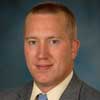 Steven Prior, PhD, assistant professor, Department of Medicine, received a three-year, $598,779 Paul B. Beeson Patient-Oriented Career Development Award in Aging from the National Institute on Aging and the American Federation for Aging Research for “Effects of Aerobic Exercise on EPCs and Vascular Dysfunction in Aging and T2DM.”
Steven Prior, PhD, assistant professor, Department of Medicine, received a three-year, $598,779 Paul B. Beeson Patient-Oriented Career Development Award in Aging from the National Institute on Aging and the American Federation for Aging Research for “Effects of Aerobic Exercise on EPCs and Vascular Dysfunction in Aging and T2DM.”
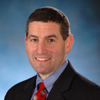 Aaron Rapoport, MD, the Gary Jobson Professor in Medical Oncology, Department of Medicine, received a new three-year, $989,000 R01 from the NIH for “Adoptive Transfer of Gene-Modified Autologous T-cells post-ASCT for Myeloma.”
Aaron Rapoport, MD, the Gary Jobson Professor in Medical Oncology, Department of Medicine, received a new three-year, $989,000 R01 from the NIH for “Adoptive Transfer of Gene-Modified Autologous T-cells post-ASCT for Myeloma.”
 Mary Rodgers PT, PhD, FAPTA, professor and chair, Department of Physical Therapy & Rehabilitation Science, received a one-year contract for $30,100 from Dynasplint Systems, Inc. for her work “Physical Therapy Meta-Analysis: The Effect of Joint Contracture Management with Assistive Devices on Range of Motion.”
Mary Rodgers PT, PhD, FAPTA, professor and chair, Department of Physical Therapy & Rehabilitation Science, received a one-year contract for $30,100 from Dynasplint Systems, Inc. for her work “Physical Therapy Meta-Analysis: The Effect of Joint Contracture Management with Assistive Devices on Range of Motion.”
 Mark Rogers, PT, PhD, FAPTA, professor and vice chair for research, Department of Physical Therapy & Rehabilitation Science, and director of the PhD Program in Physical Rehabilitation Science, was awarded a Research Supplement to Promote Diversity in Health-Related Research Programs in the amount of $151,830 over three years in support of graduate student Ozell Sanders. The supplement is for Dr. Roger’s National Institute on Aging (NIA)-funded R01 “Intervention to Enhance Lateral Balance Function and Prevent Falls in Aging.”
Mark Rogers, PT, PhD, FAPTA, professor and vice chair for research, Department of Physical Therapy & Rehabilitation Science, and director of the PhD Program in Physical Rehabilitation Science, was awarded a Research Supplement to Promote Diversity in Health-Related Research Programs in the amount of $151,830 over three years in support of graduate student Ozell Sanders. The supplement is for Dr. Roger’s National Institute on Aging (NIA)-funded R01 “Intervention to Enhance Lateral Balance Function and Prevent Falls in Aging.”
 Nanette Steinle, MD, assistant professor, Department of Medicine, has been awarded a five-year, $424,960 National Institute of Diabetes and Digestive and Kidney Diseases (NIDDK)-funded T35 grant, which will support mentored medical student research, with the aim of encouraging students to enter medical careers involving research. Beginning in the summer of 2013, UMB faculty will serve as mentors to 12 medical students who will complete a defined research training experience beginning in the summer between their first and second year of medical school.
Nanette Steinle, MD, assistant professor, Department of Medicine, has been awarded a five-year, $424,960 National Institute of Diabetes and Digestive and Kidney Diseases (NIDDK)-funded T35 grant, which will support mentored medical student research, with the aim of encouraging students to enter medical careers involving research. Beginning in the summer of 2013, UMB faculty will serve as mentors to 12 medical students who will complete a defined research training experience beginning in the summer between their first and second year of medical school.
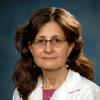 Terry Watnick, MD, professor, Department of Medicine, received a new five-year, $1.1 million R01 for “Comprehensive Analysis of Polycystin Related Endothelial Cell Signaling Pathways.”
Terry Watnick, MD, professor, Department of Medicine, received a new five-year, $1.1 million R01 for “Comprehensive Analysis of Polycystin Related Endothelial Cell Signaling Pathways.”
 Peixin Yang, PhD, assistant professor, Department of Obstetrics, Gynecology & Reproductive Sciences, received a new one-year, $149,999 R56 award from the National Institute of Diabetes and Digestive and Kidney Diseases (NIDDK) for his work on “Metabolic Cellular Stress and its Regulatory Mechanism in Diabetic Embryopathy.”
Peixin Yang, PhD, assistant professor, Department of Obstetrics, Gynecology & Reproductive Sciences, received a new one-year, $149,999 R56 award from the National Institute of Diabetes and Digestive and Kidney Diseases (NIDDK) for his work on “Metabolic Cellular Stress and its Regulatory Mechanism in Diabetic Embryopathy.”
The Center for Integrative Medicine was awarded a five-year, $3 million grant from NIH/NCCAM for the “Cochrane Collaboration CAM Field: Resource for Research” to continue the work of disseminating up-to-date, accurate information about the effects of healthcare interventions, producing SRs of healthcare interventions, and promoting the search for evidence in the form of 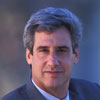 clinical trials and other studies. Brian Berman, MD, director of the Center and professor, Department of Family & Community Medicine, is the PI on the grant. The Center was also awarded a one-year, $123,000 grant from the McCormick Science Institute entitled “An Educational Intervention Focusing upon Spices and Herbs to Improve Diet Quality among Baltimore City High School Students.” The team—lead by PI Chris D’Adamo, PhD, assistant professor, Department of Family & Community Medicine—will develop, implement, and evaluate a Spices & Herbs educational intervention in Baltimore City Public High Schools.
clinical trials and other studies. Brian Berman, MD, director of the Center and professor, Department of Family & Community Medicine, is the PI on the grant. The Center was also awarded a one-year, $123,000 grant from the McCormick Science Institute entitled “An Educational Intervention Focusing upon Spices and Herbs to Improve Diet Quality among Baltimore City High School Students.” The team—lead by PI Chris D’Adamo, PhD, assistant professor, Department of Family & Community Medicine—will develop, implement, and evaluate a Spices & Herbs educational intervention in Baltimore City Public High Schools.
Honors & Awards
 Kelly Beazley, PhD, a postdoctoral fellow working in the lab of Maria Nurminskaya, PhD, associate professor, Department of Biochemistry & Molecular Biology, received the 2012 GPILS Postdoctoral Scholar Award.
Kelly Beazley, PhD, a postdoctoral fellow working in the lab of Maria Nurminskaya, PhD, associate professor, Department of Biochemistry & Molecular Biology, received the 2012 GPILS Postdoctoral Scholar Award.
Preeta Dasgupta, PhD, 2012 GPILS graduate, won first prize (and a $2000 cash reward) at the 17th International Conference of the Inflammation Research Association’s C. Gordon Van Arman Scholarship Awards at the Sagamore Resort on Lake George, Bolton Landing, NY, in September. She was recognized for her thesis work in the Program in Molecular Microbiology & Immunology, where she studied in the lab of Achsah Keegan, PhD, professor, Department of Microbiology & Immunology and Center for Vascular and Inflammatory Diseases (CVID). Dr. Dasgupta is currently a post-doctoral fellow in the inflammation research group at MedImmune.
 Gabriel Eades, PhD, a graduate student in the Molecular Medicine Program working in the lab of Qun Zhou, MD, PhD, assistant professor, Department of Biochemistry & Molecular Biology, received the 2012 GPILS Outstanding PhD Scholar Award.
Gabriel Eades, PhD, a graduate student in the Molecular Medicine Program working in the lab of Qun Zhou, MD, PhD, assistant professor, Department of Biochemistry & Molecular Biology, received the 2012 GPILS Outstanding PhD Scholar Award.
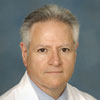 Steven Gambert, MD, AGSF, MACP, professor, Department of Medicine and co-director of the Division of Gerontology and Geriatric Medicine, was named among the top one percent of physicians in Geriatrics by US News and World Report in September.
Steven Gambert, MD, AGSF, MACP, professor, Department of Medicine and co-director of the Division of Gerontology and Geriatric Medicine, was named among the top one percent of physicians in Geriatrics by US News and World Report in September.
Jennifer Huang, PhD, a postdoctoral fellow in the Department of Biochemistry & Molecular Biology working in the lab of Thomas Hornyak, MD, PhD, associate professor, Department of Dermatology, received first place for her poster presentation “Identification of EZH2 Target Genes in Melanoma” at the 2012 annual meeting of the Pan-American Society for Pigment Cell Research in Park City, UT. Her prizes included a year’s online and print subscription to the journal Pigment Cell Research and a book on melanins and melanogenesis.
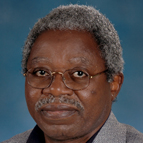 Vincent Njar, PhD, professor and Angela Brodie, PhD, professor, both from the Department of Pharmacology, have been issued several patents that cover their invention VN/124-1 (also known as TOK-001 and Galeterone) and related compounds technology. The technology of VN/124-1 and related compounds has been licensed by University of Maryland, Baltimore (UMB) to Tokai Pharmaceuticals, Inc. in Cambridge, MA, who are currently developing the technology via clinical trials in castration-resistant prostate cancer (CRPC) patients. Tokai recently completed ARMOR1, a Phase 1 proof-of-concept study of Galeterone in patients with CRPC, part of the ARMOR (Androgen Receptor Modulation Optimized for Response) clinical development program, and are now initiating a Phase 2 clinical trial in patients with CRPC. Results
Vincent Njar, PhD, professor and Angela Brodie, PhD, professor, both from the Department of Pharmacology, have been issued several patents that cover their invention VN/124-1 (also known as TOK-001 and Galeterone) and related compounds technology. The technology of VN/124-1 and related compounds has been licensed by University of Maryland, Baltimore (UMB) to Tokai Pharmaceuticals, Inc. in Cambridge, MA, who are currently developing the technology via clinical trials in castration-resistant prostate cancer (CRPC) patients. Tokai recently completed ARMOR1, a Phase 1 proof-of-concept study of Galeterone in patients with CRPC, part of the ARMOR (Androgen Receptor Modulation Optimized for Response) clinical development program, and are now initiating a Phase 2 clinical trial in patients with CRPC. Results  from the ARMOR1 clinical trial were presented at the American Association for Cancer Research (AACR) Annual Meeting 2012 and the 2012 Annual Meeting of the American Society of Clinical Oncology (ASCO), showing that Galeterone demonstrated efficacy and was well-tolerated in patients with CRPC. On the basis of promising phase I studies, Tokai recently announced that Galeterone (TOK-001) has received Fast Track designation from the U.S. Food and Drug Administration (FDA) for the potential treatment of CRPC.
from the ARMOR1 clinical trial were presented at the American Association for Cancer Research (AACR) Annual Meeting 2012 and the 2012 Annual Meeting of the American Society of Clinical Oncology (ASCO), showing that Galeterone demonstrated efficacy and was well-tolerated in patients with CRPC. On the basis of promising phase I studies, Tokai recently announced that Galeterone (TOK-001) has received Fast Track designation from the U.S. Food and Drug Administration (FDA) for the potential treatment of CRPC.
 Christopher Plowe, MD, MPH, professor, Departments of Medicine, Microbiology & Immunology, and Epidemiology & Public Health, received in October the American College of Physicians Award for Outstanding Work in Science as Related to Medicine. Dr. Plowe has built one of the most productive malaria research programs in the world, and is best known for his work on the molecular epidemiology of drug-resistant malaria. He also holds the prestigious title of Howard Hughes Medical Institute Investigator.
Christopher Plowe, MD, MPH, professor, Departments of Medicine, Microbiology & Immunology, and Epidemiology & Public Health, received in October the American College of Physicians Award for Outstanding Work in Science as Related to Medicine. Dr. Plowe has built one of the most productive malaria research programs in the world, and is best known for his work on the molecular epidemiology of drug-resistant malaria. He also holds the prestigious title of Howard Hughes Medical Institute Investigator.
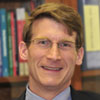 Geoffrey Rosenthal, MD, PhD, professor, and Sudhir Vashist, MD, assistant professor, both from the Department of Pediatrics, and Sunjay Kaushal, MD, PhD, associate professor, Department of Surgery, were recently nominated by the parents of a pediatric surgical patient to be honored in Great Stories, sponsored by the UMMC Commitment to Excellence (C2X) Employee Engagement Team. This publication recognizes UMMC staff and partners who have been identified by others as individuals who have exceeded the behavioral standards, exhibited role model behavior, and taken action to enhance the customer experience.
Geoffrey Rosenthal, MD, PhD, professor, and Sudhir Vashist, MD, assistant professor, both from the Department of Pediatrics, and Sunjay Kaushal, MD, PhD, associate professor, Department of Surgery, were recently nominated by the parents of a pediatric surgical patient to be honored in Great Stories, sponsored by the UMMC Commitment to Excellence (C2X) Employee Engagement Team. This publication recognizes UMMC staff and partners who have been identified by others as individuals who have exceeded the behavioral standards, exhibited role model behavior, and taken action to enhance the customer experience.
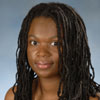 Tonya Webb, PhD, assistant professor, Department of Microbiology & Immunology, was named one of the Top 100 Women of Maryland by The Daily Record. This annual award honors women 40 years old or younger for the accomplishments they have made so far in their careers. They are judged on professional experience, community involvement and their commitment to inspiring change, and are recognized as the leaders of the future. Although the majority of the Top 100 women are from business backgrounds, outstanding women scientists like Dr. Webb are starting to make significant inroads into this group.
Tonya Webb, PhD, assistant professor, Department of Microbiology & Immunology, was named one of the Top 100 Women of Maryland by The Daily Record. This annual award honors women 40 years old or younger for the accomplishments they have made so far in their careers. They are judged on professional experience, community involvement and their commitment to inspiring change, and are recognized as the leaders of the future. Although the majority of the Top 100 women are from business backgrounds, outstanding women scientists like Dr. Webb are starting to make significant inroads into this group.
 Gerald Wilson, PhD, associate professor, Department of Biochemistry & Molecular Biology, received the 2012 GPILS Teacher of the Year Award.
Gerald Wilson, PhD, associate professor, Department of Biochemistry & Molecular Biology, received the 2012 GPILS Teacher of the Year Award.
In the News
 Carissa Baker-Smith, MD, MPH, MS, assistant professor, Department of Pediatrics, appeared on Your Health on Maryland Public Television on October 1. A new law took effect in Maryland on September 1, 2012, requiring all newborns to be screened for Critical Congenital Heart Disease (CCHD). Dr. Baker-Smith spoke about this important new screening, as well as symptoms and treatment advancements for critical congenital heart disease and other cardiac issues impacting the health of babies and young children.
Carissa Baker-Smith, MD, MPH, MS, assistant professor, Department of Pediatrics, appeared on Your Health on Maryland Public Television on October 1. A new law took effect in Maryland on September 1, 2012, requiring all newborns to be screened for Critical Congenital Heart Disease (CCHD). Dr. Baker-Smith spoke about this important new screening, as well as symptoms and treatment advancements for critical congenital heart disease and other cardiac issues impacting the health of babies and young children.
 Anna Belle Fishbein, MD, assistant professor, Department of Pediatrics, was quoted in a July 9 article on WebMD entitled “Many Babies Healthier in Homes with Dogs.”
Anna Belle Fishbein, MD, assistant professor, Department of Pediatrics, was quoted in a July 9 article on WebMD entitled “Many Babies Healthier in Homes with Dogs.”
 Claire Fraser, PhD, professor, Departments of Medicine and Microbiology & Immunology, and director of the Institute for Genome Sciences, was interviewed by Susan Hendricks on CNN’s Medical Minute on September 11. The topic was “Bacteria in Gut May Cause Morbid Obesity.” Dr. Fraser discussed her research with the Human Microbiome Project and the different species of bacteria in the gut that appear to be linked to obesity and diabetes. Dr. Fraser also discussed the same research in an interview with Nathan Sterner on NPR’s Maryland Morning radio talk show on September 12 entitled “Could Gut Bacteria Be Creating Your Gut?”
Claire Fraser, PhD, professor, Departments of Medicine and Microbiology & Immunology, and director of the Institute for Genome Sciences, was interviewed by Susan Hendricks on CNN’s Medical Minute on September 11. The topic was “Bacteria in Gut May Cause Morbid Obesity.” Dr. Fraser discussed her research with the Human Microbiome Project and the different species of bacteria in the gut that appear to be linked to obesity and diabetes. Dr. Fraser also discussed the same research in an interview with Nathan Sterner on NPR’s Maryland Morning radio talk show on September 12 entitled “Could Gut Bacteria Be Creating Your Gut?”
 Joyce Frye, DO, clinical assistant professor, Department of Family & Community Medicine and Center for Integrative Medicine, was featured on Everyday Health.com in an article entitled “Food Therapy for Fibromyalgia” in September 2012.
Joyce Frye, DO, clinical assistant professor, Department of Family & Community Medicine and Center for Integrative Medicine, was featured on Everyday Health.com in an article entitled “Food Therapy for Fibromyalgia” in September 2012.
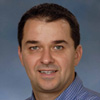 Jacques Ravel, PhD, professor, Department of Microbiology & Immunology and associate director for Genomics at the Institute for Genome Sciences, was interviewed by Sheilah Kast on NPR’s Maryland Morning radio talk show on July 20, discussing his new journal Microbiome. The journal was also mentioned in the Baltimore Sun’s science section on July 29. Additionally, Dr. Ravel was interviewed by Dr. Jim Novick about his research on the human microbiome and its role in health and diseases on the Medical Hour WCBM radio talk show on August 26. He was also featured in the September issue of Genome Technology magazine, which noted the launch of his Microbiome journal.
Jacques Ravel, PhD, professor, Department of Microbiology & Immunology and associate director for Genomics at the Institute for Genome Sciences, was interviewed by Sheilah Kast on NPR’s Maryland Morning radio talk show on July 20, discussing his new journal Microbiome. The journal was also mentioned in the Baltimore Sun’s science section on July 29. Additionally, Dr. Ravel was interviewed by Dr. Jim Novick about his research on the human microbiome and its role in health and diseases on the Medical Hour WCBM radio talk show on August 26. He was also featured in the September issue of Genome Technology magazine, which noted the launch of his Microbiome journal.
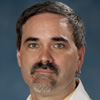 Owen White, PhD, professor, Department of Epidemiology & Public Health and the Institute for Genome Sciences, was interviewed by Kathleen Dunn on National Public Radio on June 20. The interview discussed his research for the Human Microbiome Project: http://www.wpr.org/wcast/download-mp3-request.cfm?mp3file=dun120620e.mp3&iNoteID=155938.
Owen White, PhD, professor, Department of Epidemiology & Public Health and the Institute for Genome Sciences, was interviewed by Kathleen Dunn on National Public Radio on June 20. The interview discussed his research for the Human Microbiome Project: http://www.wpr.org/wcast/download-mp3-request.cfm?mp3file=dun120620e.mp3&iNoteID=155938.
New Faculty
 Anna Belle Fishbein, MD, joined the Department of Pediatrics as an assistant professor in the Division of Allergy/Pulmonology on September 1. Dr. Fishbein was awarded her Doctor of Medicine at the University of Chicago Pritzker School of Medicine in 2007 and was a pediatric resident at Northwestern University/Children’s Memorial Hospital in Chicago from 2007–2010. She followed this with a fellowship in Allergy & Immunology at University/Children’s Memorial Hospital in Chicago from 2010–2012. She is board-certified in Pediatrics and board-eligible for Allergy.
Anna Belle Fishbein, MD, joined the Department of Pediatrics as an assistant professor in the Division of Allergy/Pulmonology on September 1. Dr. Fishbein was awarded her Doctor of Medicine at the University of Chicago Pritzker School of Medicine in 2007 and was a pediatric resident at Northwestern University/Children’s Memorial Hospital in Chicago from 2007–2010. She followed this with a fellowship in Allergy & Immunology at University/Children’s Memorial Hospital in Chicago from 2010–2012. She is board-certified in Pediatrics and board-eligible for Allergy.
 Suma Hoffman, MD, joined the Department of Pediatrics as an assistant professor in the Division of Pediatric Neonatology on August 1. Dr. Hoffman was awarded her Doctor of Medicine at the University of North Carolina Chapel Hill School of Medicine in 2006. She was a resident in Pediatrics at Children’s National Medical Center in Washington, DC from 2006–2009. She followed this with a fellowship in Neonatology at Children’s National Medical Center beginning in 2009. She is Board certified in Pediatrics and Board eligible for Neonatal-Perinatal Medicine. She is a member of the American Academy of Pediatrics and the American Federation for Medical Research and has been the recipient of various honors and awards.
Suma Hoffman, MD, joined the Department of Pediatrics as an assistant professor in the Division of Pediatric Neonatology on August 1. Dr. Hoffman was awarded her Doctor of Medicine at the University of North Carolina Chapel Hill School of Medicine in 2006. She was a resident in Pediatrics at Children’s National Medical Center in Washington, DC from 2006–2009. She followed this with a fellowship in Neonatology at Children’s National Medical Center beginning in 2009. She is Board certified in Pediatrics and Board eligible for Neonatal-Perinatal Medicine. She is a member of the American Academy of Pediatrics and the American Federation for Medical Research and has been the recipient of various honors and awards.
 Michelle Pearce, PhD, joined the Department of Family & Community Medicine and the Center for Integrative Medicine as an assistant professor on August 1. Dr. Pearce is a clinical psychologist, licensed to practice in Maryland, who specializes in behavioral medicine and spirituality and health. She received her PhD from Yale University after completing an internship in medical psychology at Duke University Medical Center. She then completed two post-doctoral fellowships at Duke University Medical Center, one in Cognitive Behavioral Therapy (CBT) and one with the Center for Spirituality, Theology, and Health. Dr. Pearce’s research focuses on the relationship between religion/spirituality, coping, and health; spiritual needs among end-of-life oncology patients; and the integration of spirituality into the practice of psychotherapy.
Michelle Pearce, PhD, joined the Department of Family & Community Medicine and the Center for Integrative Medicine as an assistant professor on August 1. Dr. Pearce is a clinical psychologist, licensed to practice in Maryland, who specializes in behavioral medicine and spirituality and health. She received her PhD from Yale University after completing an internship in medical psychology at Duke University Medical Center. She then completed two post-doctoral fellowships at Duke University Medical Center, one in Cognitive Behavioral Therapy (CBT) and one with the Center for Spirituality, Theology, and Health. Dr. Pearce’s research focuses on the relationship between religion/spirituality, coping, and health; spiritual needs among end-of-life oncology patients; and the integration of spirituality into the practice of psychotherapy.
Kalpesh Vakharia, MD, joined the Department of Otorhinolaryngology-Head & Neck Surgery as an assistant professor in September. Dr. Vakharia earned his Doctor of Medicine from the University of California, San Francisco. He completed his residency in Otorhinolaryngology at the Harvard Otorhinolaryngology residency program in June 2011, followed by a Facial Plastic and Reconstructive fellowship at the Cleveland Clinic.
Publications
Steven Ludwig, MD, associate professor, Department of Orthopaedics, was a co-author on “Fractures and Dislocations of the Lumbar and Lumbosacral Spine,” an invited article in Orthopaedic Knowledge Online, 2012 Jul;10(8). He also co-authored “Complications Associated with Posterior Cervical Instrumentation,” and (with Abimbola Obafemi, MD, resident) “Injuries to the Tracheoesophageal Spine,” chapters in the book The Cervical Spine, 5th Edition, published by Lippincott Williams & Wilkins in August 2012; co-authored “Percutaneous Pedicle Screw Fixation and Fusion for Trauma,” a chapter in the book Operative Techniques in Spine Surgery, published by Lippincott Williams & Wilkins in October 2012; and co-authored  “Thoracolumbar Fracture-Dislocations,” a chapter in the book Decision Making in Spinal Care, published by Thieme Publishers in November 2012. Dr. Ludwig and department colleagues Oliver Tannous, MD, resident, and Kelley Banagan, MD, assistant professor, were among the co-authors on “Lumbar Transforaminal Interbody Fusion,” a chapter in the book Atlas of Essential Orthopaedic Procedures, published by the American Academy of Orthopaedic Surgeons in October 2012.
“Thoracolumbar Fracture-Dislocations,” a chapter in the book Decision Making in Spinal Care, published by Thieme Publishers in November 2012. Dr. Ludwig and department colleagues Oliver Tannous, MD, resident, and Kelley Banagan, MD, assistant professor, were among the co-authors on “Lumbar Transforaminal Interbody Fusion,” a chapter in the book Atlas of Essential Orthopaedic Procedures, published by the American Academy of Orthopaedic Surgeons in October 2012.
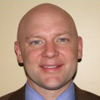 Theodore Manson, MD, and Robert O’Toole, MD, both assistant professors, Department of Orthopaedics, were among the co-authors on “Combined Pelvic Ring Disruption and Acetabular Fracture: Associated Injury Patterns in 40 Patients” in the Journal of Orthopaedic Trauma, 2012 Aug 7 [Epub ahead of print]. Dr. O’Toole and W. Andrew Eglseder, MD, associate professor, were among the co-authors on “Fracture of the Distal Radius with Radial Artery Injury: Injury Description and Outcome of Vascular Repair” in the journal Injury, 2012 Sept 28 [Epub ahead of print]. Drs. O’Toole and Eglseder, along with Jason Nascone, MD, associate professor; Marcus Sciadini, MD, associate professor; and Andrew Pollak, MD, professor, were among the co-authors on “Does Sleep Deprivation Impair Orthopaedic Trauma Surgeons’ Cognitive and Psychomotor Performance?” in the Journal of Bone and Joint Surgery, American Volume, 2012 Sept;94:1-7. Drs. O’Toole, Pollak, Nascone, Sciadini and Aaron Johnson, MD, resident, co-authored “Diagnosis of Femoral Neck Fracture Associated with Femoral Shaft Fracture: A Blinded Comparison of Computed Tomographic Scans and Plain Radiographs” in the Journal of Orthopaedic Trauma, 2012 Sept 4 [Epub ahead of print.
Theodore Manson, MD, and Robert O’Toole, MD, both assistant professors, Department of Orthopaedics, were among the co-authors on “Combined Pelvic Ring Disruption and Acetabular Fracture: Associated Injury Patterns in 40 Patients” in the Journal of Orthopaedic Trauma, 2012 Aug 7 [Epub ahead of print]. Dr. O’Toole and W. Andrew Eglseder, MD, associate professor, were among the co-authors on “Fracture of the Distal Radius with Radial Artery Injury: Injury Description and Outcome of Vascular Repair” in the journal Injury, 2012 Sept 28 [Epub ahead of print]. Drs. O’Toole and Eglseder, along with Jason Nascone, MD, associate professor; Marcus Sciadini, MD, associate professor; and Andrew Pollak, MD, professor, were among the co-authors on “Does Sleep Deprivation Impair Orthopaedic Trauma Surgeons’ Cognitive and Psychomotor Performance?” in the Journal of Bone and Joint Surgery, American Volume, 2012 Sept;94:1-7. Drs. O’Toole, Pollak, Nascone, Sciadini and Aaron Johnson, MD, resident, co-authored “Diagnosis of Femoral Neck Fracture Associated with Femoral Shaft Fracture: A Blinded Comparison of Computed Tomographic Scans and Plain Radiographs” in the Journal of Orthopaedic Trauma, 2012 Sept 4 [Epub ahead of print.
 Amal Mattu, MD, professor, Department of Emergency Medicine, was co-editor of Urgent Care Emergencies: Avoiding the Pitfalls and Improving the Outcomes, a 14-chapter book published by Wiley-Blackwell in October. Chapters were contributed by the following faculty members from the Department of Emergency Medicine: Michael Abraham, MD, MS, clinical assistant professor; Michael Bond, MD, assistant professor; Alisa Gibson, MD, DMD, clinical assistant professor; Joseph Martinez, MD, assistant professor and assistant dean for student affairs; Siamak Moayedi, MD, assistant professor; Stephen Schenkel, MD, MPP, associate professor; Sarah Sommerkamp, MD, assistant professor; Mercedes Torres, MD, clinical assistant professor; and George Willis, MD, assistant professor.
Amal Mattu, MD, professor, Department of Emergency Medicine, was co-editor of Urgent Care Emergencies: Avoiding the Pitfalls and Improving the Outcomes, a 14-chapter book published by Wiley-Blackwell in October. Chapters were contributed by the following faculty members from the Department of Emergency Medicine: Michael Abraham, MD, MS, clinical assistant professor; Michael Bond, MD, assistant professor; Alisa Gibson, MD, DMD, clinical assistant professor; Joseph Martinez, MD, assistant professor and assistant dean for student affairs; Siamak Moayedi, MD, assistant professor; Stephen Schenkel, MD, MPP, associate professor; Sarah Sommerkamp, MD, assistant professor; Mercedes Torres, MD, clinical assistant professor; and George Willis, MD, assistant professor.
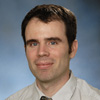 Daniel Morgan, MD, assistant professor, Department of Epidemiology & Public Health, was a co-author on “Uncertainty in the Application of Contact Precautions” in Clinical Infectious Disease, 2012 Aug;55(3):474-475.
Daniel Morgan, MD, assistant professor, Department of Epidemiology & Public Health, was a co-author on “Uncertainty in the Application of Contact Precautions” in Clinical Infectious Disease, 2012 Aug;55(3):474-475.
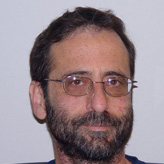 Zeev Pancer, PhD, associate professor, Department of Biochemistry & Molecular Biology, was a co-author on “Sugar-Binding Proteins from Fish: Selection of High Affinity ‘Lambodies’ That Recognize Biomedically Relevant Glycans” in ACS Chemical Biology, 2012 Oct 2 [Epub ahead of print].
Zeev Pancer, PhD, associate professor, Department of Biochemistry & Molecular Biology, was a co-author on “Sugar-Binding Proteins from Fish: Selection of High Affinity ‘Lambodies’ That Recognize Biomedically Relevant Glycans” in ACS Chemical Biology, 2012 Oct 2 [Epub ahead of print].
 Michelle Pearce, PhD, assistant professor, Department of Family & Community Medicine and the Center for Integrative Medicine was a co-author on “Unmet Spiritual Care Needs Impact Emotional and Spiritual Well-Being in Advanced Patient Care” in Supportive Care in Cancer, 2012 Oct;20(10):2269-76.
Michelle Pearce, PhD, assistant professor, Department of Family & Community Medicine and the Center for Integrative Medicine was a co-author on “Unmet Spiritual Care Needs Impact Emotional and Spiritual Well-Being in Advanced Patient Care” in Supportive Care in Cancer, 2012 Oct;20(10):2269-76.
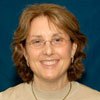 Laura Pimentel, MD, clinical associate professor; Jon Mark Hirshon, MD, MPH, PhD, associate professor; Fermin Barrueto, Jr, MD, clinical associate professor; and Brian Browne, MD, professor and chair, all from the Department of Emergency Medicine, were co-authors on “Development of a University-Based Emergency Department Network: Lessons Learned” in The Journal of Emergency Medicine, 2012 Oct;43(4):728-35.
Laura Pimentel, MD, clinical associate professor; Jon Mark Hirshon, MD, MPH, PhD, associate professor; Fermin Barrueto, Jr, MD, clinical associate professor; and Brian Browne, MD, professor and chair, all from the Department of Emergency Medicine, were co-authors on “Development of a University-Based Emergency Department Network: Lessons Learned” in The Journal of Emergency Medicine, 2012 Oct;43(4):728-35.
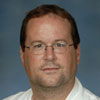 Robert Rogers, MD, associate professor, Departments of Emergency Medicine and Medicine, is the chief editor of the second edition of Practical Teaching in Emergency Medicine, a 25-chapter book published by Wiley-Blackwell in August. Associate editors for this text were department colleagues Amal Mattu, MD, professor; Michael Winters, MD, associate professor; Joseph Martinez, MD, assistant professor and assistant dean for student affairs; and Terrence Mulligan, DO, MPH, assistant professor, who also wrote a chapter for the work. Other chapters were contributed by Emergency Medicine’s Michael Bond, MD, assistant professor; Siamak Moayedi, MD, assistant professor; Traci Thoureen, MD, MHS-CL, clinical assistant professor; and Mercedes Torres, MD, clinical assistant professor.
Robert Rogers, MD, associate professor, Departments of Emergency Medicine and Medicine, is the chief editor of the second edition of Practical Teaching in Emergency Medicine, a 25-chapter book published by Wiley-Blackwell in August. Associate editors for this text were department colleagues Amal Mattu, MD, professor; Michael Winters, MD, associate professor; Joseph Martinez, MD, assistant professor and assistant dean for student affairs; and Terrence Mulligan, DO, MPH, assistant professor, who also wrote a chapter for the work. Other chapters were contributed by Emergency Medicine’s Michael Bond, MD, assistant professor; Siamak Moayedi, MD, assistant professor; Traci Thoureen, MD, MHS-CL, clinical assistant professor; and Mercedes Torres, MD, clinical assistant professor.
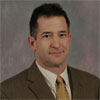 Marcus Sciadini, MD, associate professor, Department of Orthopaedics, was a co-author on “Injury to the Anterior Tibial System During Percutaneous Plating of a Proximal Tibial Fracture” in Orthopedics, 2012 Jul;35(7):e1125-e1128.
Marcus Sciadini, MD, associate professor, Department of Orthopaedics, was a co-author on “Injury to the Anterior Tibial System During Percutaneous Plating of a Proximal Tibial Fracture” in Orthopedics, 2012 Jul;35(7):e1125-e1128.
Maureen Shanks, PhD, former research associate, along with Joseph Mauban, PhD, academic fellow, both from the Department of Physiology, and Linda Lund, PhD, research associate, Department of Biochemistry & Molecular Biology, were among the co-authors on “Chromodomain Helicase Binding Protein 8 (Chd8) Is a Novel A-Kinase Anchoring Protein Expressed during Rat Cardiac Development” in PLoS ONE, 2012;7(10): e46316.
 Ming Tan, PhD, professor, Department of Epidemiology & Public Health, was a co-author on “CPAF: A Chlamydial Protease in Search of an Authentic Substrate” in PLoS Pathogens, 2012 Aug;8(8):e1002842. Dr. Tan, Rui-Xin Zhang, PhD, assistant professor, and Brian Berman, MD, professor, both from the Department of Family & Community Medicine and the Center for Integrative Medicine, which Dr. Berman directs, were among the co-authors on “Electroacupuncture Inhibition of Hyperalgesia in an Inflammatory Pain Rat Model: Involvement of Distinct Spinal Serotonin and Norepinephrine Receptor Subtypes” in the British Journal of Anaesthesia, 2012 Aug;109(2):245-252. Drs. Zhang and Berman and Lixing Lao, PhD, professor, were among the co-authors on “Does Acupuncture Therapy Alter Activation of Neural Pathway for Pain Perception in Irritable Bowel Syndrome?: A Comparative Study of True Sham Acupuncture Using Functional Magnetic Resonance Imaging” in the Journal of Neurogastroenterology and Motility, 2012 Jul; 18:3.
Ming Tan, PhD, professor, Department of Epidemiology & Public Health, was a co-author on “CPAF: A Chlamydial Protease in Search of an Authentic Substrate” in PLoS Pathogens, 2012 Aug;8(8):e1002842. Dr. Tan, Rui-Xin Zhang, PhD, assistant professor, and Brian Berman, MD, professor, both from the Department of Family & Community Medicine and the Center for Integrative Medicine, which Dr. Berman directs, were among the co-authors on “Electroacupuncture Inhibition of Hyperalgesia in an Inflammatory Pain Rat Model: Involvement of Distinct Spinal Serotonin and Norepinephrine Receptor Subtypes” in the British Journal of Anaesthesia, 2012 Aug;109(2):245-252. Drs. Zhang and Berman and Lixing Lao, PhD, professor, were among the co-authors on “Does Acupuncture Therapy Alter Activation of Neural Pathway for Pain Perception in Irritable Bowel Syndrome?: A Comparative Study of True Sham Acupuncture Using Functional Magnetic Resonance Imaging” in the Journal of Neurogastroenterology and Motility, 2012 Jul; 18:3.
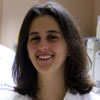 Kerri Thom, MD, assistant professor and Anthony Harris, MD, MPH, professor, both from the Department of Epidemiology & Public Health, were among the authors on “Assessing Sensitivity and Specificity in New Diagnostic Tests: The Importance and Challenges of Study Populations” in Infection Control and Hospital Epidemiology, 2012 Nov;33(11):1184.
Kerri Thom, MD, assistant professor and Anthony Harris, MD, MPH, professor, both from the Department of Epidemiology & Public Health, were among the authors on “Assessing Sensitivity and Specificity in New Diagnostic Tests: The Importance and Challenges of Study Populations” in Infection Control and Hospital Epidemiology, 2012 Nov;33(11):1184.
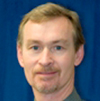 Loren Thompson, PhD, associate professor, and Yazan Al-Hasan, PhD, former postdoctoral fellow, both from the Department of Obstetrics, Gynecology & Reproductive Sciences were among the co-authors on “Impact of Oxidative Stress in Fetal Programming” in the Journal of Pregnancy, 2012 July [Epub ahead of print].
Loren Thompson, PhD, associate professor, and Yazan Al-Hasan, PhD, former postdoctoral fellow, both from the Department of Obstetrics, Gynecology & Reproductive Sciences were among the co-authors on “Impact of Oxidative Stress in Fetal Programming” in the Journal of Pregnancy, 2012 July [Epub ahead of print].
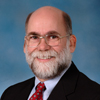 Richard Thompson, PhD, associate professor, Department of Biochemistry & Molecular Biology, was a co-author on “Structure-Selective Anisotropy Assay for Amyloid Beta Oligomers” in ACS Chemical Neuroscience, 2012 Sept 1 [Epub ahead of print].
Richard Thompson, PhD, associate professor, Department of Biochemistry & Molecular Biology, was a co-author on “Structure-Selective Anisotropy Assay for Amyloid Beta Oligomers” in ACS Chemical Neuroscience, 2012 Sept 1 [Epub ahead of print].
Rezwanul Wahid, MBBS, PhD, assistant professor; Marcelo Sztein, MD, professor; and Marcela Pasetti, PhD, professor, all from the Department of Pediatrics; Charles Richardson, MD, clinical assistant professor, Department of Psychiatry; and Samer El-Kamary, MB, ChB, MPH, assistant professor, Department of Epidemiology & Public Health were among the authors on “Intranasal Vaccination with an Adjuvanted Norwalk Virus-like Particle Vaccine Elicits Antigen-Specific B Memory Responses in Human Adult Volunteers” in Clinical Immunology, 2012 Aug;144(2):98-108.
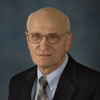 H. Ronald Zielke, PhD, professor, and Ling Li, MD, associate professor, both from the Department of Pediatrics, and David Fowler, MB, ChB, clinical associate professor, Department of Pathology, were among the co-authors on “An Anatomically Comprehensive Atlas of the Adult Human Brain Transcriptome” in Nature, 2012 Sept;489:391-399. The article was the subject of the cover. This data is freely accessible via the Allen Atlas data portal (http://www.brain-map.org).
H. Ronald Zielke, PhD, professor, and Ling Li, MD, associate professor, both from the Department of Pediatrics, and David Fowler, MB, ChB, clinical associate professor, Department of Pathology, were among the co-authors on “An Anatomically Comprehensive Atlas of the Adult Human Brain Transcriptome” in Nature, 2012 Sept;489:391-399. The article was the subject of the cover. This data is freely accessible via the Allen Atlas data portal (http://www.brain-map.org).

